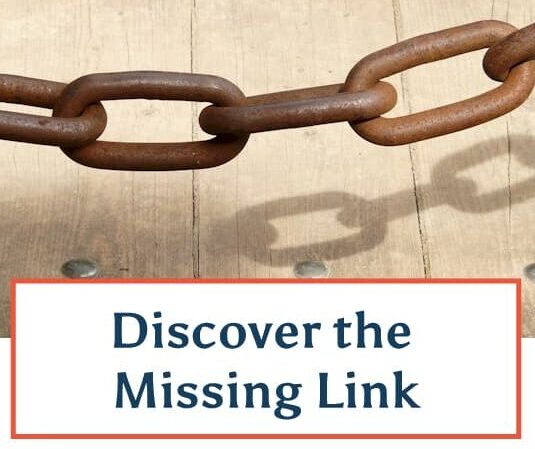There is a delicate balance between the fee you need/want to charge for your products and services and the fee that people are willing to pay. But with so many business costs rising, there comes a time when you must raise your rates in order to remain profitable. In addition, as your skill, knowledge and experiences grow, you are more valuable to your clients and can ask for higher fees.
Most people see their own costs going up and won’t be surprised that you’re raising your fees, too. With proper communication about it, you should be able to raise your fees effortlessly. Want to learn more about this? Get my free video tutorial on setting and raising your fees here.
Here are 9 tips on how to go about it:
- Don’t let fear and limiting beliefs stop you from raising your fees. If you hear yourself making excuses that you know are not true, it’s probably your fears and limiting beliefs raising their ugly head. Some of these include, “All my customers will leave if I raise my rates,” or “I’m not worth the new rate.” What makes you uncomfortable about raising your fees?
- Have a clear idea of where your break-even point is for profitability. It’s not just about what you “need” to make, it’s also about what you “want” to make. Decide how much money you want to bring into your personal life from your business and how much cash flow you want in your business to float new ventures. Think big; don’t keep cutting your goals just because you feel uncomfortable with big numbers.
- Base your fees on what the benefits and results of using your product or service are worth to your customer. For example, as a small business consultant and coach, I help people increase revenue and profit in their business. This has value to self-employed small business owners, and my fees are based on that value. If you can solve their problems, and if the problem is important enough to solve, then they’ll pay you an appropriate fee for that solution.
- Base your fees for services on your level of expertise. If your expertise level is high, if you’ve put in many years of study and have lots of experience, you’ll be able to charge higher fees than someone just starting out. Because of this, you might consider raising your fees annually as your skill level and experience grows.
- Check your competitors. Are there people out there, with your same skill level, charging more than you do? Why do you think you’re still undercharging? If your clients typically see rates for similar services and products that are higher than yours, they make wonder why your fees are so cheap.
- Determine if your product or service is a “commodity.” A commodity is a product or service that is the same, regardless of who is offering it. If you’re selling a gallon of milk, it’s the same gallon of milk that your competitors are selling. In commodity pricing, there’s no room for differentiation in the customers’ minds, and customers will be looking for the lowest price. So if you have a class called, “Copywriting 101” and your competitor has a class called, “Introduction to Copywriting,” your customers will see these two classes as the same thing, a commodity, therefore price becomes the only differentiating factor. However, if your product or service is unique, or your skillset and experience are different and better than your competitors, then you can charge more. You’d pay more for Oprah to teach you how to create your own TV show empire than someone you’ve never heard of. Bargain basement prices often scare off potential customers because they think your product or service is a commodity they can find anywhere. Use good marketing, branding and copywriting to differentiate yourself from your competitors.
- Decide in advance whether you’ll raise fees across the board, or only for new customers. Even if you raise fees only for new customers, there may come a time when existing customers will need to have their rates increased, too. Make a strategic decision about when you’ll raise your fees and for whom.
- Do the 80/20 evaluation. Find the 20% of your customers (or customer audience types) who bring you the least profit and either raise their rates or get rid of them. This may sound harsh, but you’re in business to make a profit and you can’t carry an unprofitable customer just because you like them. Refer them out to someone who can serve them at the fee the customer is willing to pay. Look to the 80% of customers who bring you the most profit (and who you most enjoy serving) and ask yourself: How can I find more customers like this who are willing to pay my fees and want to work with someone like me?
- If you will be raising your fees with existing customers, it’s a good idea to call them or write an email, explaining that the fees will be going up to the new rate. Give them a date when this will happen. I recommend giving them at least a two-month notice. Will you lose some customers who aren’t willing to pay the higher rate? Yes. But if you do, then you need to ask yourself, “Why hasn’t this customer found value in what I’m offering so that the new rate was still acceptable to them?”
This is the perfect time of year to look at your pricing model and make changes. Take a few hours and decide on your new fee structure, dates for change-over, and communication avenues.

 6 Copywriting Steps for Non-Copywriters
6 Copywriting Steps for Non-Copywriters

Nice tips, Karyn! ♥
What I find is that maaaaaaaaaaany small business owners–especially those who own service businesses–aren’t profitable to begin with, so even raising their fees doesn’t really help.
They think, based on looking around, that $____ “sounds good,” and they reason that, if they bill that they’d *have* to “make good money.”
None of that is necessarily the case, as I know you know!
A
I’m not sure that every business owners knows — really knows — their customers. They don’t know what their customers want and need, and what they’re willing to pay for it. There is a limit for how high you can raise your fees before your customers say, “It’s not worth it. I’ll find another way (or I just won’t deal with this problem and hope it goes away.”
But all too often, it’s our choice of WHICH customer segment we’re going after that defines our ultimate profit. If you go after the WalMart crowd, you can’t raise prices on them all the time. Defining your customer segments and niches is hugely critical to any business’ success.
Of course, there’s the whole question of what offers you create, and how you market them, but I’ll leave that for another time… 🙂
(Getting off my soap box now…LOL!)
Hi Karyn,
I love your article on raising fees. As a VA who has been in business for close to 5 years, it has become apparent to me that you can be billable for about 30 hours out of a 40 hour work week. So, I now have to adjust my fees again to compensate for that. If my goal was $1,000 in earnings per week I now have to earn that in 30 hours instead of 40 and my fees need to reflect that.
I’ll be raising my rates at the first of the year. 🙂
Dona
Dona, it’s fairly standard in the “consulting” world that you can only be billable between 50-75% of your working time (50% is what the gurus say). So you’ve brought up a good point: can anyone really be billable for 40 hours a week (unless they have a VA, of course! :))?
I have been trying to figure out how to raise my fees for several months now, Karyn. Thank you for an indepth peek at how to do it! I’m going to re-read this over the weekend and set my new prices by Monday. 🙂
Caroline, I know a lot of people who put off doing this because it feels overwhelming. I’m glad this blog post is giving you some confidence that you can do it. Bravo to you!
Hi Karyn Greenstreet
This is resourceful and wonderful.
Thanks
john 🙂
Glad you found it helpful, John! 🙂
Thanks very much for a very informative and useful article.
Ron
Karyn,
This topic comes up consistently in my workshops. Thanks for a comprehensive article. Sharing!
Terry
You’re welcome, Terry…share away! 🙂
We all grumble as we open our bills each month, noticing that they have gone up – again. None of those companies has one bit of regret at raising prices to keep up with inflation and other business costs, so why should those of us in service professions? Great list, Karyn, thanks for sharing your ideas. I’ve shared it with a number of people who need to be seriously ‘nudged’ to make a rate increase in 2014.
Hey Karyn –
I see this especially with women business owners in general, and those in the healing arts in particular.
And as one of my (many) favorite coaches is fond of reminding folks, your life’s purpose is to make the world a better place, but the purpose of your business is to make a profit.
In my mind, there’s no reason why you can’t do both. 🙂
Hi, Wendy,
I think so many people are afraid to raise their fees because they might appear “greedy.” It’s not greedy to be paid what you’re worth, based on the value you give to other people. And you’re right…I see this in women and those in the healing arts, too.
Thanks for the refreshing reminder of being paid what you’re worth. There was a time when I would feel so much guilt whenever I knew that I was worth a higher rate, but was fearful to tell potential clients the price.
As women in the business world, I think we really deal with that guilt factor more than our male colleagues.
The excellent point you made about commodities reassures the choice I’ve recently made to raise the bar on my business in general. Thank you for this perspective!
– Also, this is my first time visiting your website… I will be spending time on your site! You seem to have a lot of great content and information 🙂
Hi, Nikki, I’m glad you found the website. 🙂
I was on a mastermind group call today where one of the members talked about sending a proposal to a major corporation. Right before she sent it, she went is and INCREASED the fee, then hit the SEND button. Within an hour, the client called back and said yes to the proposal.
It reminds us to ask for what we’re worth! 🙂
The best perspective I ever heard about pricing was from my dry cleaner! He told me that the biggest thing standing in the way of a price increase was the business owner. I raised my prices this year, announced the price increase was coming, got new clients who signed up in a rush before the increase and signed new clients from previously untouched markets for me after the increase. All is well, the sky remained where it was, my business is more profitable. Love this topic and your guidance on this Karen!
Good story, Joe, thanks for sharing! I like the idea of announcing to clients and potential clients that there will be a price increase. As you found, it helps motivate people who want to work with you but perhaps have been indecisive.